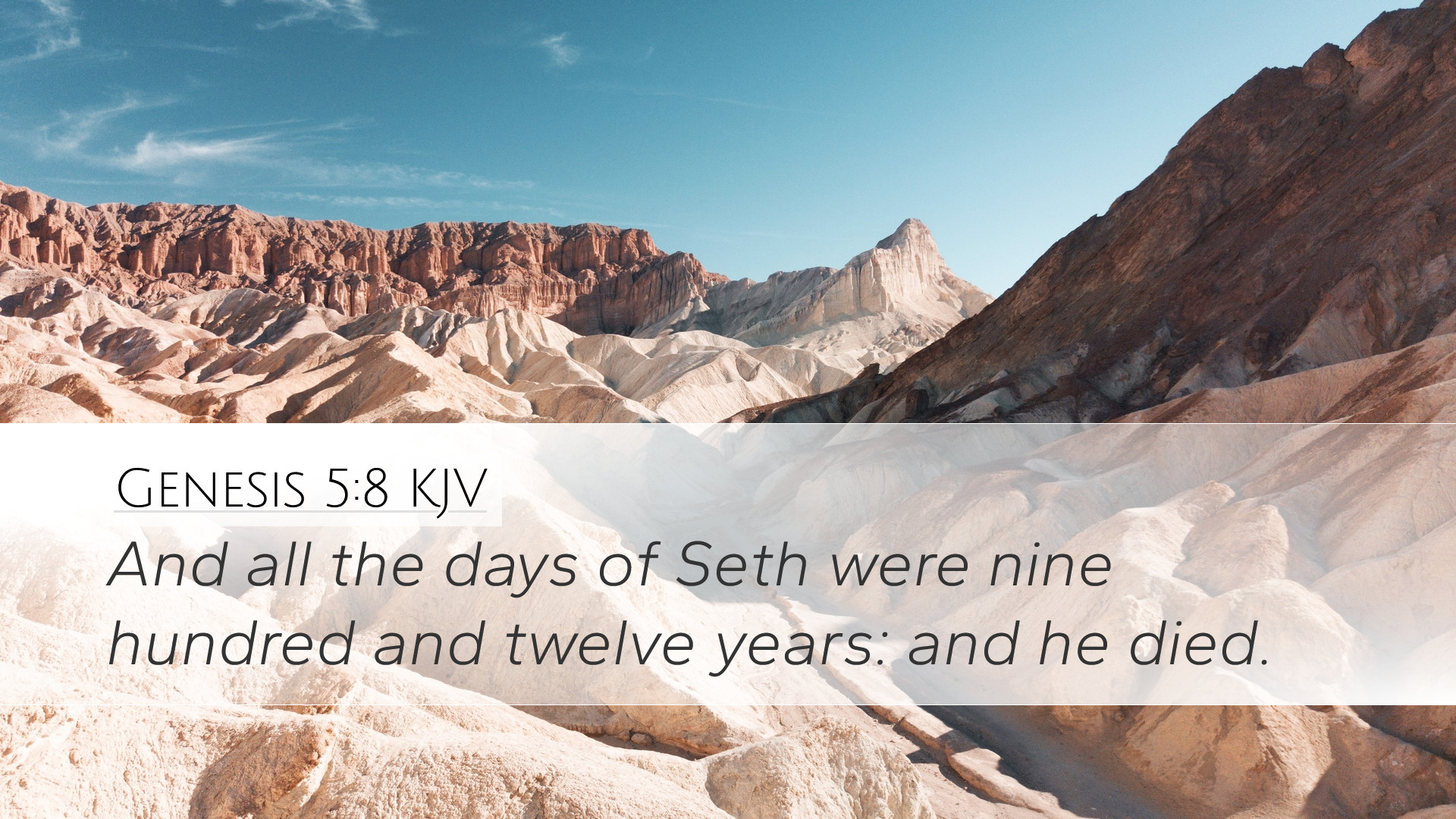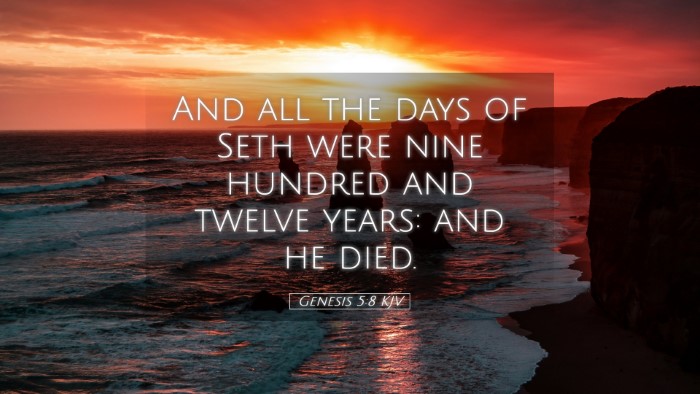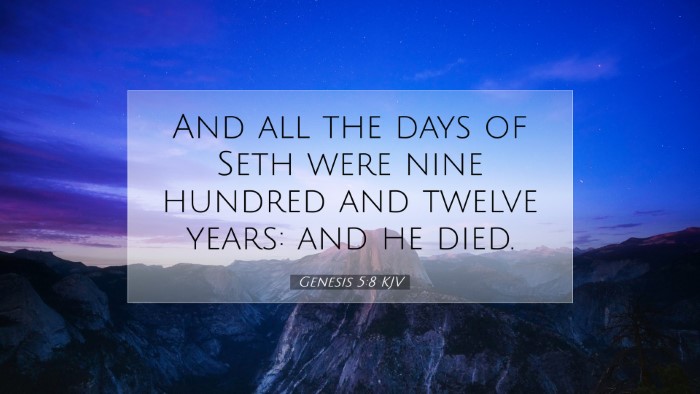Commentary on Genesis 5:8
Text of Genesis 5:8 (KJV): "And Noah lived five hundred years, and Noah begat Shem, Ham, and Japheth."
Introduction
Genesis 5:8 marks a significant moment in the genealogical account of the early patriarchs. This verse encapsulates the period of Noah's life before the great deluge, emphasizing both his lineage and his pivotal role in biblical history.
Contextual Overview
The genealogical framework established in Genesis 5 lays the groundwork for understanding the unfolding narrative of humanity leading to the Flood. Notably, the mention of Noah's age and his sons serves a dual purpose: it affixes a chronological anchor and highlights the beginning of a new era in human history.
Insights from Commentaries
Matthew Henry
Matthew Henry emphasizes the significance of Noah’s character and the divine favor he received in a time when the world was filled with wickedness. Henry asserts that Noah's righteous lineage through his sons is crucial for the preservation of godliness in the impending judgment of the flood. He notes how God chose Noah not only for his worthiness but also as a means to fulfill His covenant with humanity.
-
Divine Election: Henry comments on the idea that God selects individuals for specific purposes. Noah’s role is seen as a foreshadowing of Christ, serving a redemptive purpose amidst judgment.
-
Significance of the Sons: The naming of Shem, Ham, and Japheth is not incidental; these names carry theological significance as they represent the nations that will emerge from them, explaining the dispersion of humanity post-flood.
Albert Barnes
Albert Barnes contributes to the understanding of the text by analyzing the age of Noah and the cultural implications of his life. He provides a detailed exegesis of the term “begat,” indicating the importance of lineage and inheritance in biblical tradition.
-
Age of Noah: Barnes suggests that Noah’s age reflects the prolonged lifespans before the flood, which serves to illustrate the contrast between the antediluvian world and post-diluvian life.
-
Implications of Fatherhood: The act of fathering three sons at such an age signifies not only personal responsibility but also a legacy that Noah would bequeath, indicating the survival and future of humanity.
Adam Clarke
Adam Clarke offers insights into the genealogical importance of the verse and the prescriptive nature of the lineage that unfolds. He posits that Noah's naming of his children reflects a prophetic significance, suggesting a divinely ordained future for each of them.
-
Symbolism in Names: Clarke discusses the meanings of Noah’s sons’ names, emphasizing how these meanings can reflect their roles in biblical history.
-
Continuation of the Human Race: He also notes that through Noah’s offspring, God planned to renew humanity and fulfill His covenantal promises, demonstrating His mercy and sovereignty.
Theological Reflections
The mention of Noah’s age and the birth of his sons opens a conversation about the themes of righteousness, covenant, and regeneration in the biblical narrative.
-
Righteousness in a Corrupt World: Noah’s distinctiveness as a righteous man amidst rampant iniquity serves as a reminder of the faithful remnant God always preserves.
-
Legacy of Faith: The emphasis on his sons suggests that faith is often transgenerational, where the next generation is shaped by the piety of their forebears.
Practical Applications
For pastors, students, and theologians, Genesis 5:8 challenges readers to reflect on the importance of legacy, faith, and divine calling.
-
Leaders of Faith: Leaders should aspire to cultivate environments where faith can flourish in future generations.
-
Covenant Community: This verse reinforces the concept of community embedded in God's covenant, reminding us that God’s plans often intertwine personal and communal dimensions.
-
Righteous Living: As Noah exemplifies righteousness, modern believers are called to live honorably in a challenging world, reflecting God’s glory amid moral decay.
Conclusion
Genesis 5:8 serves as a profound testament to God’s faithfulness in safeguarding a remnant of humanity through Noah. The insights drawn from respected commentaries shed light on the themes of divine election, the significance of lineage, and the continuation of God's covenantal relationship with humanity.


